第10章 MY HUNT AFTER "THE CAPTAIN."(5)
He belonged to the Moravian Church, of which I had the misfortune to know little more than what I had learned from Southey's "Life of Wesley." and from the exquisite hymns we have borrowed from its rhapsodists. The other stranger was a New Englander of respectable appearance, with a grave, hard, honest, hay-bearded face, who had come to serve the sick and wounded on the battle-field and in its immediate neighborhood. There is no reason why I should not mention his name, but I shall content myself with calling him the Philanthropist.
So we set forth, the sturdy wagon, the serviceable bays, with James Grayden their driver, the gentle lady, whose serene patience bore up through all delays and discomforts, the Chaplain, the Philanthropist, and myself, the teller of this story.
And now, as we emerged from Frederick, we struck at once upon the trail from the great battle-field. The road was filled with straggling and wounded soldiers. All who could travel on foot,--multitudes with slight wounds of the upper limbs, the head, or face, --were told to take up their beds,--alight burden or none at all,--and walk. Just as the battle-field sucks everything into its red vortex for the conflict, so does it drive everything off in long, diverging rays after the fierce centripetal forces have met and neutralized each other. For more than a week there had been sharp fighting all along this road. Through the streets of Frederick, through Crampton's Gap, over South Mountain, sweeping at last the hills and the woods that skirt the windings of the Antietam, the long battle had travelled, like one of those tornadoes which tear their path through our fields and villages. The slain of higher condition, "embalmed" and iron-cased, were sliding off on the railways to their far homes; the dead of the rank and file were being gathered up and committed hastily to the earth; the gravely wounded were cared for hard by the scene of conflict, or pushed a little way along to the neighboring villages; while those who could walk were meeting us, as I have said, at every step in the road. It was a pitiable sight, truly pitiable, yet so vast, so far beyond the possibility of relief, that many single sorrows of small dimensions have wrought upon my feelings more than the sight of this great caravan of maimed pilgrims. The companionship of so many seemed to make a joint-stock of their suffering; it was next to impossible to individualize it, and so bring it home, as one can do with a single broken limb or aching wound. Then they were all of the male sex, and in the freshness or the prime of their strength. Though they tramped so wearily along, yet there was rest and kind nursing in store for them.
These wounds they bore would be the medals they would show their children and grandchildren by and by. Who would not rather wear his decorations beneath his uniform than on it?
Yet among them were figures which arrested our attention and sympathy. Delicate boys, with more spirit than strength, flushed with fever or pale with exhaustion or haggard with suffering, dragged their weary limbs along as if each step would exhaust their slender store oā strength. At the roadside sat or lay others, quite spent with their journey. Here and there was a house at which the wayfarers would stop, in the hope, I fear often vain, of getting refreshment; and in one place was a clear, cool spring, where the little bands of the long procession halted for a few moments, as the trains that traverse the desert rest by its fountains. My companions had brought a few peaches along with them, which the Philanthropist bestowed upon the tired and thirsty soldiers with a satisfaction which we all shared. I had with me a small flask of strong waters, to be used as a medicine in case of inward grief. From this, also, he dispensed relief, without hesitation, to a poor fellow who looked as if he needed it. I rather admired the simplicity with which he applied my limited means of solace to the first-comer who wanted it more than I; a genuine benevolent impulse does not stand on ceremony, and had I perished of colic for want of a stimulus that night, I should not have reproached my friend the Philanthropist, any more than I grudged my other ardent friend the two dollars and more which it cost me to send the charitable message he left in my hands.